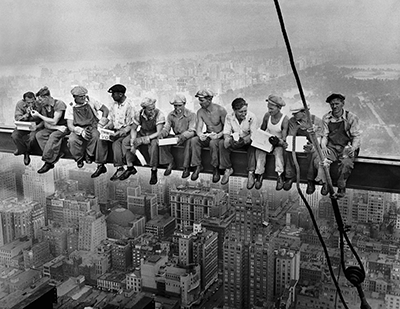After the California Supreme Court held in Brinker that the employers are “not obligated to police meal breaks and ensure that no work is performed” during breaks, many California employers felt relieved, anticipating meal and rest break litigation to slow down. However, this is not the case. While the Brinker ruling was celebrated by many as a pro-employer decision, the employers must still be aware that when it comes to complying with the California meal and rest break law, certain affirmative steps must be taken in order to avoid costly litigation exposure. American Commercial Security Services, Inc. had to learn it the hard away.
On July 6, 2012, Judge Wiley of the Los Angeles Superior Court granted employees’ summary judgment, ordering American Commercial Security Services, Inc. (“ACSS”) to pay almost $90,000,000 for its failure to provide adequate rest breaks.
In Augustus v. American Commercial Security Services, Inc. (Los Angeles Superior Court, Case No. BC336416), Plaintiff, who was employed as a security guard, and other similarly situated workers claimed that the ACSS, Inc. failed to comply with Labor Code section 512 when it required the guards to be “on-call” while taking their breaks. Plaintiff and the class alleged that the company required them to carry and respond to a radio during their breaks, when necessary.
The court found that “the general pattern of evidence, which is that ACSS required all its workers to be on-call during their breaks, and so these on-call breaks are all legally invalid.” The court also explained that even though one of the security guards testified that he did not carry a radio on certain breaks, there [was] no evidence that while on “break’ he was off-call or off-duty. There are many alternatives to the radio for hailing a person back to work: cell phone, pager, fetching, hailing, and so on.”
Practical Consideration
The $90-milion ruling is a harsh lesson to learn. Therefore, California employers must carefully review their existing meal and rest period policies. The following are some of the requirements that are often ignored by employers.
Breaks must be uninterrupted. What it means it that employees must be relived of all duties to the extent that they are allowed to leave the premises or work site. The employer must not require the employee to be available for work during the break (“on-call”.) For example, if a waitress is taking her lunch break, the employer must not require her to keep an eye on her station. Instead, another worker must relieve the waitress of all her duties for at least 30 minutes.
On-duty meal breaks require a written waiver. In certain situations, when the nature of the work prevents an employee from being relieved of all duty, employers may ask their workers to sign an agreement, allowing on-the-job paid meal periods. However, such written agreement must state that the employee may, in writing, revoke the agreement at any time. According to California Department of Industrial Relations, some examples of jobs that fit this category are a sole worker in a coffee kiosk, a sole worker in an all-night convenience store, and a security guard stationed alone at a remote site.
On-site meal breaks are compensable. If the employer requires the employee to remain at the work site or facility during the meal period, the meal period must be paid. This is true even where the employee is relieved of all work duties during the meal period. Bono Enterprises, In. v. Bradshaw (1995) 32 Cal.App.4th 968.
If you have questions regarding California meal or rest break law, feel free to contact a San Francisco employment law attorney for a free consultation.


